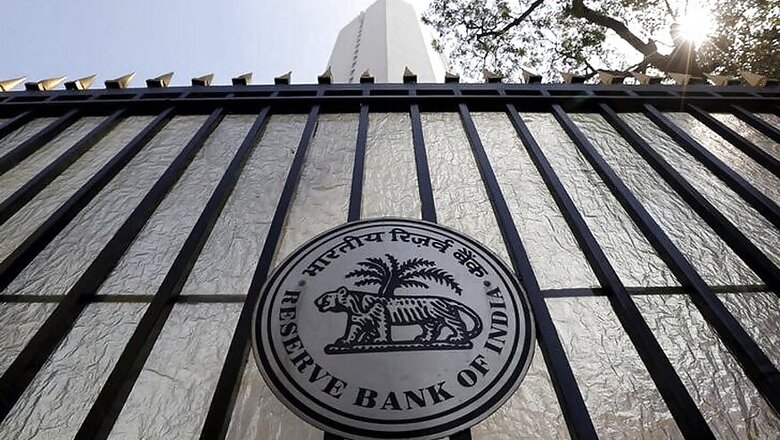
views
Mumbai: Citing medium term risks to inflation and uncertainties on external and fiscal fronts, RBI Governor Urjit Patel had pleaded for keeping interest rate unchanged, as per the minutes of the last Monetary Policy Committee (MPC) meet released on Wednesday.
He emphasised the need for keeping headline inflation close to 4 percent on a durable basis.
"We have to be vigilant on account of uncertainties on the external and fiscal fronts; this calls for a cautious approach," he said.
The RBI Governor-headed six-member MPC had met on October 3 and 4 to decide this fiscal's third bi-monthly monetary policy.
Based on the majority view at the MPC meet, the central bank decided to maintain status quo and left key policy rate (repo) unchanged at 6 percent despite a clamour for moderation to boost the economy which hit 3 year low of 5.7 percent in the first quarter of the current fiscal.
Chetan Ghate (Professor, Indian Statistical Institute), Pami Dua (Director, Delhi School of Economics), Michael Debabrata Patra (executive director), Viral V Acharya (RBI Deputy Governor) and Patel were in favour of the monetary policy decision, while Ravindra H Dholakia voted for a policy rate reduction of at least 25 basis points.
"In my view, the policy rate should have been cut by 50 basis point long back in June 2017. A cut of 25 basis point in August was too small and too late. We can still make the additional cut of 25 basis point now if we want to be extremely cautious.
"Otherwise, my opinion is that we have a space for a cut of about 40 basis point at present with due consideration to any possible upward risk to future inflation," Dholakia (Professor, IIM, Ahmedabad) had said at the MPC meeting.
MPC had expressed concern that implementation of farm loan waivers by states may result in possible fiscal slippages and undermine the quality of public spending, thereby exerting pressure on prices.
Acharya said at the meeting that RBI remains committed to improving the transmission of monetary policy.
"I believe there is still some scope left for transmission of past monetary policy accommodation to existing loan portfolio that is tied to the base rate," said Acharya,
who is incharge of monetary policy department. Noting that the recent structural reforms may have had some impact on growth in the short run, Patel said they will boost medium-to-long term growth prospects.
"To improve immediate growth prospects, teething troubles relating to GST (Goods and Services Tax) need to be addressed expeditiously. Concerted efforts also need to be made to encourage investment activity by removing various constraints," he said.
The minutes said MPC's decision was consistent with a neutral stance of the monetary policy in consonance with the
objective of achieving the medium-term target for retail inflation of 4 percent within a band of +/- 2 percent, while supporting growth.

















Comments
0 comment